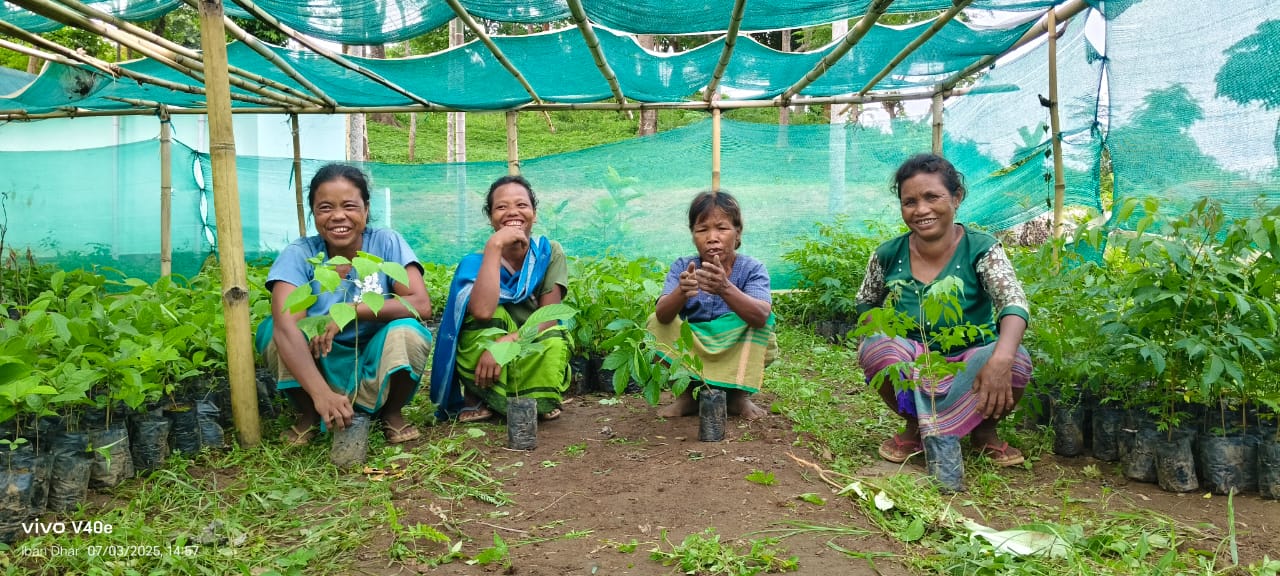
A Nursery of Dreams: The Women of Thaugittim
You don’t need degrees or machinery to fight climate change — sometimes, all it takes is a determined group of women and a patch of land. In Thaugittim, a remote village in Meghalaya’s East Garo Hills, that’s exactly what happened.
Back in 2017, nine women came together to form the Nangrima Self-Help Group under the National Rural Livelihoods Mission (NRLM). Like many SHGs, it began as a way to manage savings and offer each other support during tough times. But over the years, their conversations started to shift. They spoke not just of loans and livelihoods, but of land, forests, and the disappearing green cover around their village.
By 2024, that shift had taken shape.
With support from the Community-Based Forest Management and Livelihood Improvement (MegLIFE) project, financed by JICA, the women received training and tools to start a community nursery. But the real strength came from within — their coordination, commitment, and clarity of purpose.
They didn’t wait for ideal conditions. When bamboo was scarce, they improvised. With limited funds, they relied on indigenous knowledge and community cooperation. What they lacked in materials, they made up for with persistence and resourcefulness.
By the end of the year, over 8,200 saplings had been raised — native species like Chickrasia tabularis and Mesua ferrea, selected for their ability to support biodiversity, stabilize soil, and store carbon. Their techniques combined tradition and innovation: organic mulching, water conservation methods, and locally adapted planting cycles.
But the nursery didn’t just grow trees. It grew confidence.
Women who once hesitated to speak now facilitated meetings. They learned to manage accounts, plan nursery cycles, and explore markets. Their identity expanded — from caregivers of their homes to caretakers of their landscape.
Word began to spread. Neighbouring villages came to see the nursery, to learn, and to ask questions. The women of Nangrima SHG shared what they knew, not as experts, but as practitioners — proof that meaningful change could begin with ordinary people doing something extraordinary, together.
As one member said, standing proudly among the rows of saplings:
“We started with a small idea. Now we have trees, skills, and something to pass on.”
What grew in Thaugittim wasn’t just a nursery — it was a living symbol of community-led change, rooted in resilience and nurtured by hope.




